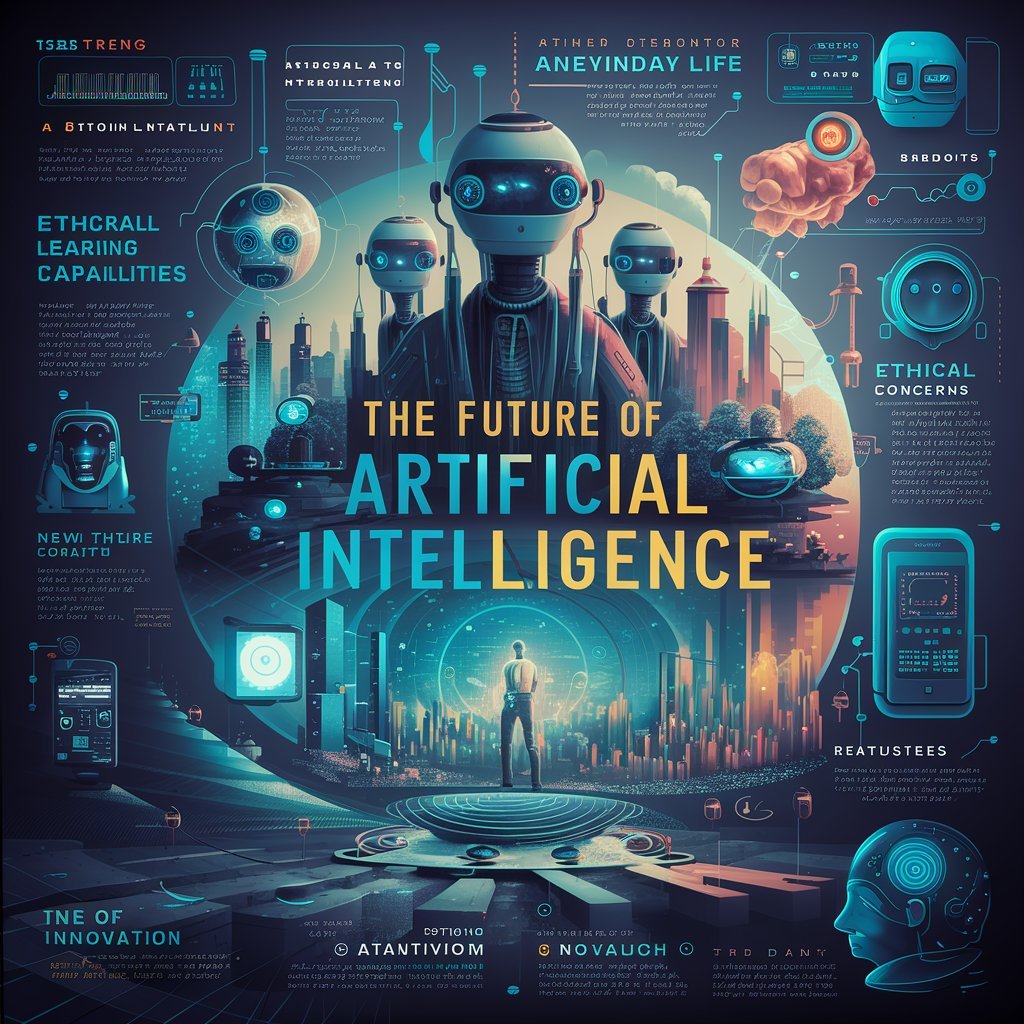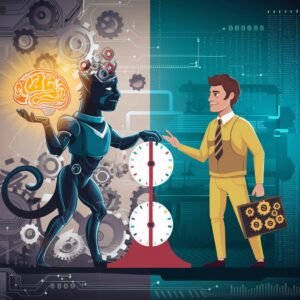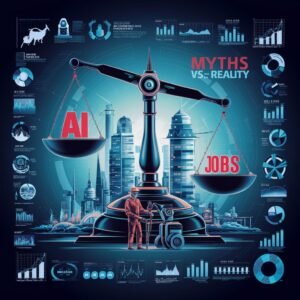Introduction:
Artificial Intelligence (AI) has rapidly evolved in recent years, transforming various industries and revolutionizing the way we live, work, and interact with technology. As AI continues to advance, it’s essential to understand the emerging trends and predictions shaping its future. In this article, we’ll explore the key trends and predictions for the future of AI and how they are poised to impact society, businesses, and everyday life.
- Continued Growth of Deep Learning: Deep learning, a subset of machine learning, has been instrumental in driving many AI advancements, including natural language processing, computer vision, and speech recognition. As computing power increases and algorithms become more sophisticated, we can expect to see continued growth and innovation in deep learning techniques, enabling AI systems to achieve even greater levels of accuracy and complexity.
- AI-Powered Automation: Automation powered by AI technologies such as robotic process automation (RPA) and intelligent process automation (IPA) will continue to disrupt traditional workflows and business processes across various industries. AI-driven automation will streamline repetitive tasks, improve efficiency, and free up human workers to focus on more strategic and creative endeavors.
- Rise of Explainable AI (XAI): Explainable AI (XAI) is an emerging field focused on making AI systems more transparent and interpretable, enabling users to understand how AI algorithms make decisions. As AI becomes increasingly integrated into critical systems such as healthcare, finance, and autonomous vehicles, there is a growing need for transparency and accountability in AI decision-making processes.
- Ethical and Responsible AI: Concerns around AI ethics, bias, and fairness have gained prominence as AI technologies are deployed in various domains, impacting individuals’ lives and societal systems. The future of AI will necessitate a greater emphasis on ethical and responsible AI development practices, including bias detection and mitigation, fairness in algorithmic decision-making, and adherence to privacy and data protection regulations.
- AI in Healthcare: AI has the potential to revolutionize healthcare by enabling more accurate diagnosis, personalized treatment plans, and predictive analytics for disease prevention. In the future, we can expect to see AI-powered medical imaging, drug discovery, remote patient monitoring, and virtual healthcare assistants becoming more prevalent, leading to improved patient outcomes and healthcare delivery.
- AI in Edge Computing: Edge computing, which involves processing data closer to the source of data generation, is gaining traction with the proliferation of IoT devices and the need for real-time processing and decision-making. AI algorithms deployed at the edge will enable devices to perform advanced analytics, optimize resource utilization, and respond to events autonomously without relying on centralized cloud infrastructure.
- AI and Sustainability: AI technologies have the potential to address global challenges such as climate change, resource scarcity, and environmental conservation. From optimizing energy consumption in smart buildings to predicting natural disasters and monitoring wildlife populations, AI-driven solutions can contribute to sustainable development and environmental stewardship.
- Democratization of AI: The democratization of AI tools and technologies will empower individuals, businesses, and organizations to harness the power of AI without requiring extensive technical expertise. As AI becomes more accessible through user-friendly platforms, libraries, and APIs, we can expect to see broader adoption and innovation across diverse sectors and industries.
Conclusion:
The future of AI is brimming with possibilities, from advancements in deep learning and automation to ethical considerations and societal impacts. As AI technologies continue to evolve and mature, they will play an increasingly integral role in shaping the way we live, work, and interact with the world around us. By staying abreast of emerging trends and predictions in AI, businesses and individuals can prepare for the transformative opportunities and challenges that lie ahead in the AI-powered future.





